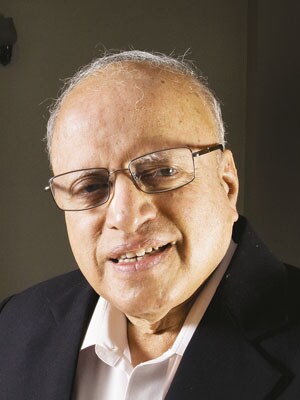
M.S. Swaminathan: No Urgency for BT Brinjal
Agricultural scientist M.S. Swaminathan tells Forbes India why India needs an independent regulatory authority for GM research
M.S. Swaminathan
Age: 85
Title: Member of Parilament, Rajya Sabha; Chairman of the M.S. Swaminathan Research Foundation
Career: Scientific leader of the Green Revolution; Co-chairman of the UN Millennium Task Force on Hunger between 2002 and 2005
Interests: Gardening and cricket
There is a feeling that the need for political consensus has drowned the voices of scientists about the safety of BT Brinjal.
There is need for more tests. Tests have largely been done by the company. There has been no independent verification. In many countries there is a need for independent verification of data.
Biotech is a very powerful tool. We should not deny ourselves the benefits of it. But then, when it comes to food crops, risks and benefits have to be weighed in a way that public has confidence that risks have been considered.
US, for example, has three independent mechanisms for verification. The Environmental Protection Agency studies the environmental aspect. Federal Drug Administration studies all aspects of human health, short term, long term and so on.
The US system is also such that if something goes wrong, if someone can prove that you get cancer by eating this product, the punishment is very high there — $20 billion to $30 billion. It’s fair and swift. So, companies are also very careful in the US.
But what if these products get mired in discussions, controversies at the end as it’s happening to BT Brinjal?
There is no urgency here. It’s not that if you postpone this variety of brinjal for another year, you lose anything. It’s not a food security crop.
I see three positive outcomes from all these discussions. One is general enlightenment of public. They have been getting concentrated dose of education in terms of understanding of GM crops.
(This story appears in the 05 March, 2010 issue of Forbes India. To visit our Archives, click here.)















